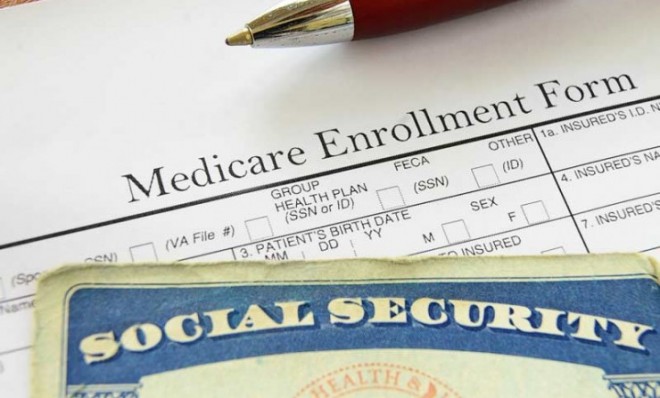Should Congress raise the eligibility age for Medicare?
Going from 65 to 67 would save more than $100 billion over the next decade


A free daily email with the biggest news stories of the day – and the best features from TheWeek.com
You are now subscribed
Your newsletter sign-up was successful
As America races toward the fiscal cliff, much of the debate has centered on raising tax rates on households earning more than $250,000 a year. Republicans remain publicly opposed to the idea, but the smart money is that they've lost that argument and know it. President Obama won re-election with a promise to raise taxes on the wealthy; Speaker John Boehner (R-Ohio) has little leverage to make Obama back down; and even a majority of Republicans — 61 percent — supports the idea.
Less discussed is what entitlement cuts the two sides can agree on. One money-saving proposal is to raise the eligibility age for Medicare. As Janet Hook and Carol E. Lee note at The Wall Street Journal, "The prospect of cuts to Medicare and other entitlement programs is making many Democrats anxious. Of particular concern is Republicans' call for increasing the eligibility age for Medicare from 65 to 67, an idea that cold split Democrats." According to the Congressional Budget Office, raising the eligibility age gradually between 2012 and 2021 would save $113 billion.
Liberals oppose the idea on the grounds that it is ineffective and inhumane. "There are far better ways of extracting Medicare savings," says Greg Sargent at The Washington Post:
The Week
Escape your echo chamber. Get the facts behind the news, plus analysis from multiple perspectives.

Sign up for The Week's Free Newsletters
From our morning news briefing to a weekly Good News Newsletter, get the best of The Week delivered directly to your inbox.
From our morning news briefing to a weekly Good News Newsletter, get the best of The Week delivered directly to your inbox.
And doing this could hurt lots and lots of people. As I noted yesterday, a new report finds that raising the age could leave hundreds of thousands of seniors (many of them poor) uninsured, because there’s no telling for sure whether Obamacare or Medicaid will be an effective safety net for those booted from Medicare. What’s more, the report finds that it could undermine ObamaCare’s goals of controlling health care costs.
However, many conservative commentators say raising the age is a no-brainer. It's not about "arbitrarily stiffing seniors," says Daniel Foster at National Review:
The principle behind it is that Americans are both living longer and working longer, and that old-age/retirement entitlements should reflect that shift… Yes, raising the eligibility age would shift costs from the government to individuals, and yes, that would save the government money. This is a deficit reduction deal we are talking about.
In the end, even if isn't smart policy, Democrats may be better off compromising, says Jonathan Chait at New York:
Since the Medicare retirement age holds such strange totemic power on the right, and since there are ways to mitigate the harm, it seems like a sensible bargaining chip that can be traded for other policies that have a lot of value. And that’s the real question here — not, Are bad policies acceptable?, but, Which bad policies should we be willing to accept?
A free daily email with the biggest news stories of the day – and the best features from TheWeek.com
Ryu Spaeth is deputy editor at TheWeek.com. Follow him on Twitter.
-
 Political cartoons for February 16
Political cartoons for February 16Cartoons Monday’s political cartoons include President's Day, a valentine from the Epstein files, and more
-
 Regent Hong Kong: a tranquil haven with a prime waterfront spot
Regent Hong Kong: a tranquil haven with a prime waterfront spotThe Week Recommends The trendy hotel recently underwent an extensive two-year revamp
-
 The problem with diagnosing profound autism
The problem with diagnosing profound autismThe Explainer Experts are reconsidering the idea of autism as a spectrum, which could impact diagnoses and policy making for the condition
-
 The billionaires’ wealth tax: a catastrophe for California?
The billionaires’ wealth tax: a catastrophe for California?Talking Point Peter Thiel and Larry Page preparing to change state residency
-
 Bari Weiss’ ‘60 Minutes’ scandal is about more than one report
Bari Weiss’ ‘60 Minutes’ scandal is about more than one reportIN THE SPOTLIGHT By blocking an approved segment on a controversial prison holding US deportees in El Salvador, the editor-in-chief of CBS News has become the main story
-
 Has Zohran Mamdani shown the Democrats how to win again?
Has Zohran Mamdani shown the Democrats how to win again?Today’s Big Question New York City mayoral election touted as victory for left-wing populists but moderate centrist wins elsewhere present more complex path for Democratic Party
-
 Millions turn out for anti-Trump ‘No Kings’ rallies
Millions turn out for anti-Trump ‘No Kings’ ralliesSpeed Read An estimated 7 million people participated, 2 million more than at the first ‘No Kings’ protest in June
-
 Ghislaine Maxwell: angling for a Trump pardon
Ghislaine Maxwell: angling for a Trump pardonTalking Point Convicted sex trafficker's testimony could shed new light on president's links to Jeffrey Epstein
-
 The last words and final moments of 40 presidents
The last words and final moments of 40 presidentsThe Explainer Some are eloquent quotes worthy of the holders of the highest office in the nation, and others... aren't
-
 The JFK files: the truth at last?
The JFK files: the truth at last?In The Spotlight More than 64,000 previously classified documents relating the 1963 assassination of John F. Kennedy have been released by the Trump administration
-
 'Seriously, not literally': how should the world take Donald Trump?
'Seriously, not literally': how should the world take Donald Trump?Today's big question White House rhetoric and reality look likely to become increasingly blurred